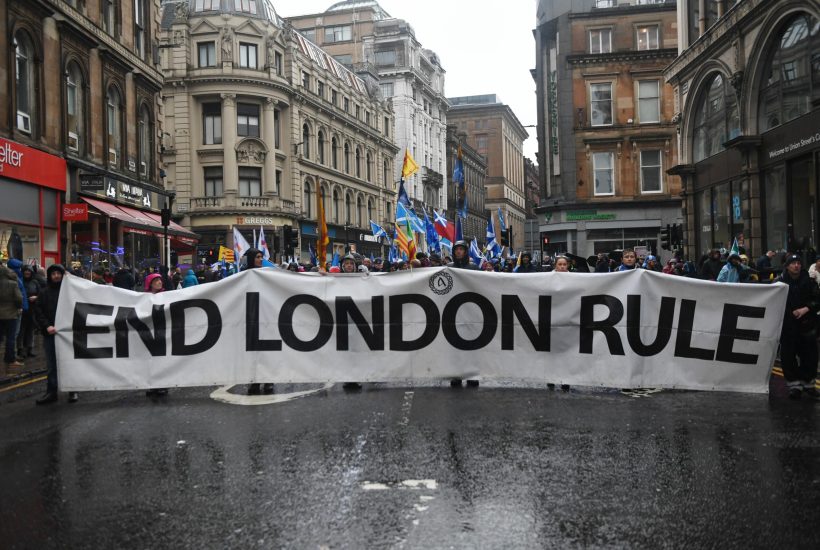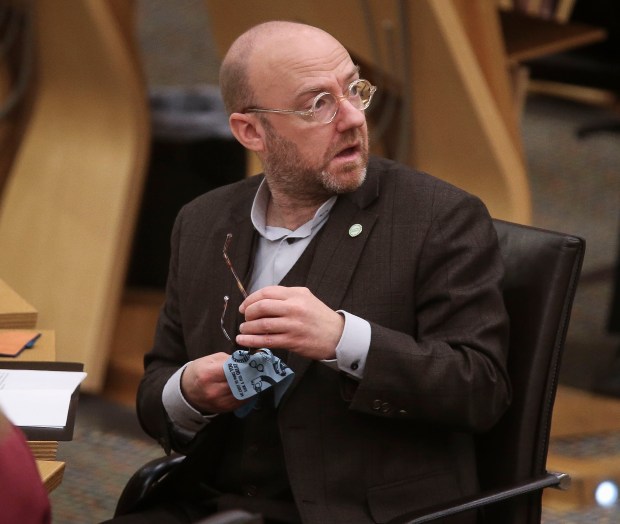Anyone who engages in online debate about the case for Scottish independence will have encountered Scottish nationalist fact-deniers and myth-spreaders lurking on social media. They are not interested in engaging in serious debate; their ambition is simply to give their side licence to ignore basic economic facts.
Keen to understand the true scale of this problem, we at These Islands commissioned Survation to poll Scottish voters about their understanding of basic economic facts and their attitudes towards some widely-circulated myths. We were dismayed to learn that economic fact-denial has spread far beyond the swampy backwaters of social media and is now mainstream among Scottish independence supporters.
Fact Denial

The reality of Scotland’s deficit position is shown in the Government Expenditure and Revenue Scotland (GERS) figures published by the Scottish Government. These figures qualify as national statistics and are compiled at the behest of the Scottish Government by their own statisticians and economists who sit in St Andrew’s House in Edinburgh. Despite this, our survey found that 57 per cent of Scottish independence supporters agree with the following statement:
‘The figures used to calculate Scotland’s deficit (the GERS figures) are made up by Westminster to hide Scotland’s true wealth.’
We also tested how important survey respondents who agreed with this statement considered it to be to their opinion on Scottish independence and 90 per cent of them rated it as ‘important’ or ‘very important’.
It should be obvious that the statement is not true. The figures are demonstrably not ‘made up by Westminster’ and it is fantastical to believe that the SNP-run Scottish Government would choose to publish figures which ‘hide Scotland’s true wealth’. Yet we have discovered that most independence supporters not only believe it but consider it to be important to their support for separatism.
The survey also found that most independence supporters agreed with other verifiably false statements relating to official Scottish Government figures. These are myths widely shared on social media which, to be blunt, imply that the Scottish Government’s economists are idiots.
- 54 per cent of independence supporters agree that ‘Scottish tax revenues are understated because of Scottish exports leaving via English ports’
- 66 per cent agree that ‘Scottish tax revenues are understated because taxes generated by the whisky industry are not properly allocated to Scotland’
- 55 per cent agree that ‘Scotland is only seen to be running a deficit because some costs outside of Scotland, like HS2 and infrastructure spending in the South East, are charged to Scotland’
This denial of the Scottish Government’s economic data and belief in myths about how the figures are compiled is consistent with our survey’s finding that only 20 per cent of independence supporters are aware that total public spending in Scotland is more than the amount raised in taxes. Perhaps equally as worrying, we found only 46 per cent of those who oppose separatism were aware of this basic fact.
This is not some marginal issue. In 2018-19 (the most recent year for which full figures are available), spending in Scotland exceeded taxes raised by an estimated £5.7bn. Add on spending on Scotland’s behalf that takes place outside Scotland (overseas development aid, international diplomatic representation, defence and central government spending outside Scotland and Scotland’s share of the UK’s debt-servicing costs) and Scotland’s total deficit was £13.1bn.
The debate about Scotland’s future in the UK shouldn’t just be about economics, but if 80 per cent of independence supporters are unaware how much more is spent in Scotland than raised in taxes, they will be in for the rudest of all rude awakenings if they ever get their constitutional wish.
A desire to see a well-informed electorate should not be a partisan issue, but we found that it is overwhelmingly independence supporters who appear to have been persuaded to deny the Scottish Government’s own data. Anybody who cares for informed debate might want to ask why an accomplished communicator like Nicola Sturgeon has allowed this situation to arise on her watch.
Currency Confusion
The survey also showed that, despite years of debate, the Scottish electorate remains deeply confused over the SNP’s currency policy, and supporters of independence appear as confused as the electorate in general.

The official SNP line is to keep the pound until a new Scottish currency is adopted, a policy we find only 17 per cent of the electorate are aware of. The confusion is understandable: it has suited the SNP to be opaque on currency and the motivation for this obfuscation is obvious when you look at what we found about the relative popularity of the various options:

The only option which finds favour with the electorate is ‘keep the pound indefinitely’, which is inconsistent with becoming independent. Assuming the SNP accepts that joining the EU means committing to joining the euro, the end game of their policy is the option least favoured by voters, with only 25 per cent in favour.
These Islands was formed to facilitate and encourage informed debate about the constitutional future of the United Kingdom. This survey shows that our mission has never been more important.
Kevin Hague is chairman of These Islands.
Got something to add? Join the discussion and comment below.
Get 10 issues for just $10
Subscribe to The Spectator Australia today for the next 10 magazine issues, plus full online access, for just $10.




















Comments
Don't miss out
Join the conversation with other Spectator Australia readers. Subscribe to leave a comment.
SUBSCRIBEAlready a subscriber? Log in